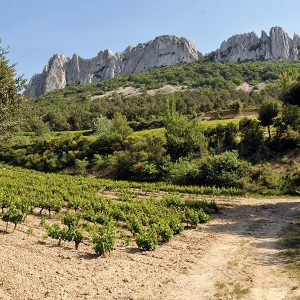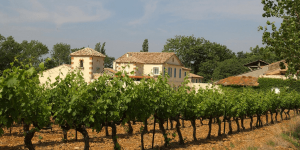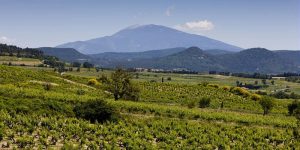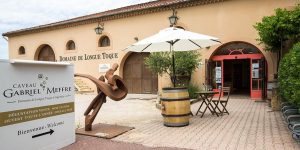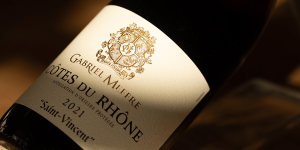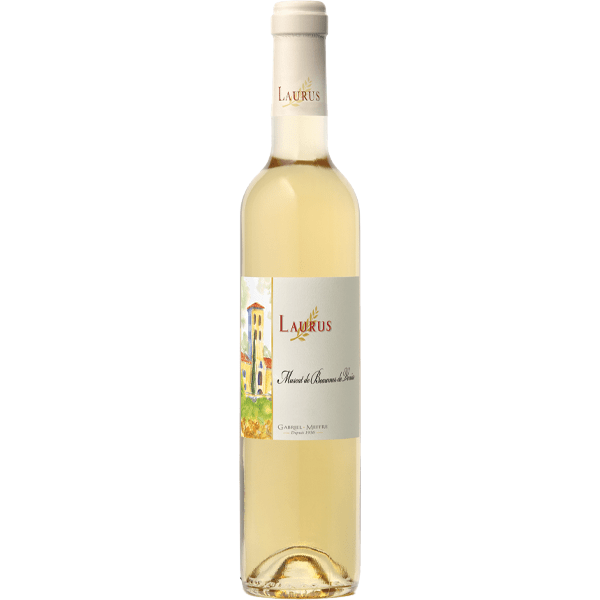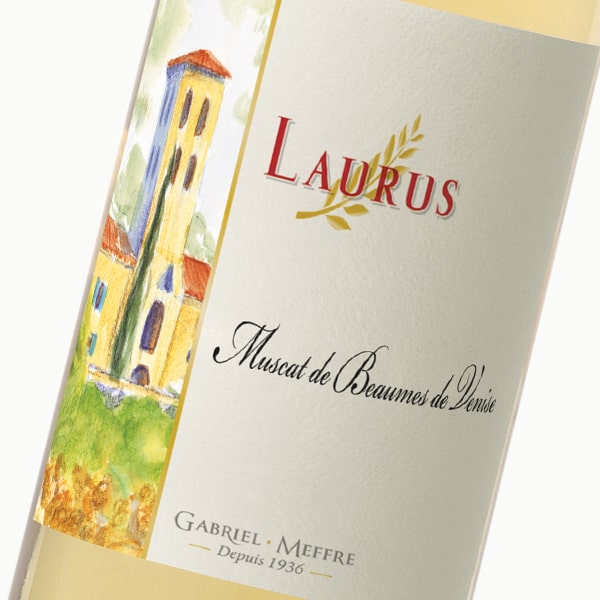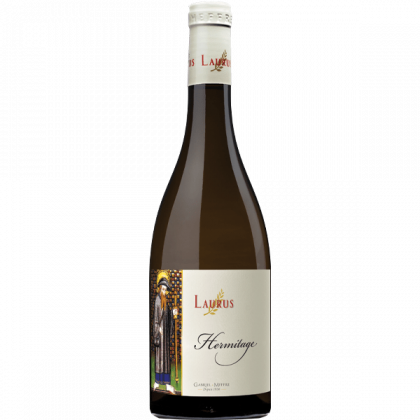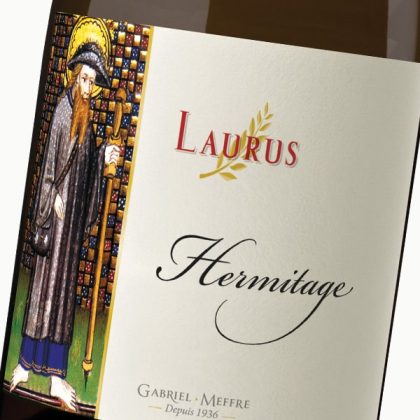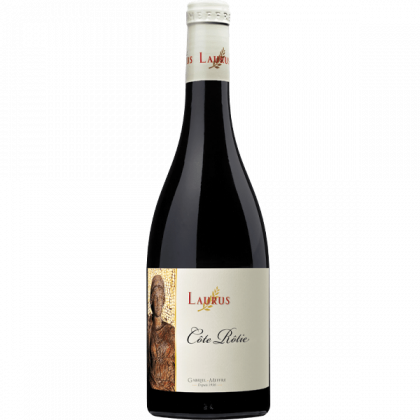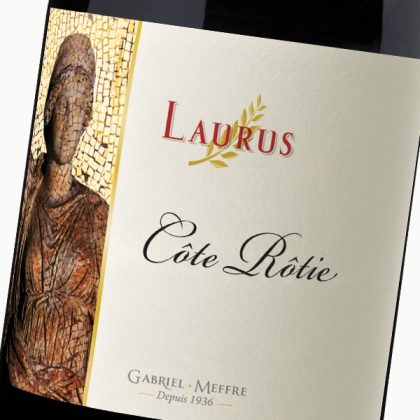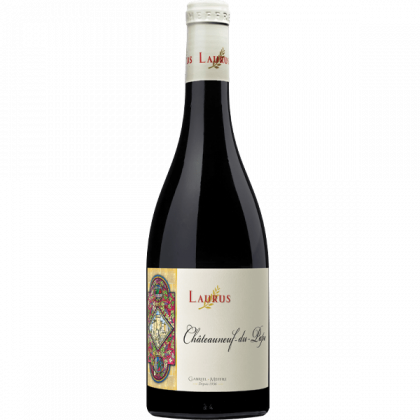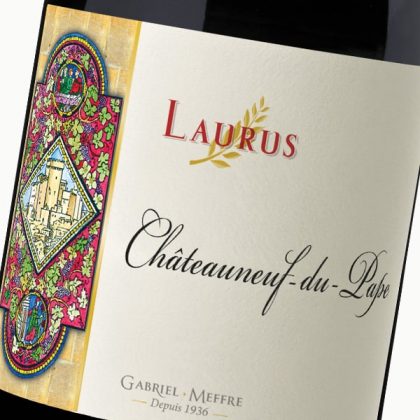Laurus
Muscat Beaumes de Venise 2017
VDN Muscat Beaumes de Venise White
Awards
- 91 pts Wine Enthusiast
TastingLight golden colour. Perfumed nose of white flowers, crystallized orange and exotic fruits. Velvety palate with peach flavours. A delicious Muscat, full and smooth with a delicate finish.
Light golden colour. Perfumed nose of white flowers, crystallized orange and exotic fruits. Velvety palate with peach flavours. A delicious Muscat, full and smooth with a delicate finish.
Food & wine pairingsCold melon soup
Chicken salad with citrus
Raspberry ricotta
Cold melon soup
Chicken salad with citrus
Raspberry ricotta
Chicken salad with citrus
Raspberry ricotta
Detailed information
Vintage
The 2017 vintage took place in weather conditions marked by high temperatures and lack of rainfall. The harvest was particularly early but the ripening phase was held in good conditions offering excellent quality grapes and satisfactory yields.
Grape varieties
Muscat à petits grains
Terroir
Vines selected on the hillsides in the south of the appellation. Soils made up of sand and safres from the Miocene period. Southern exposure. Approximately 120m altitude, provides of freshness and energy.
Winemaking
Harvest 16th August 2017. Fully manual picking in 12 kg cases at optimum ripeness and manual sorting. Destemming of the entire harvest. Cold maceration (3°C for about 5 hours) for a part of the cuvée. Pressing, cold settling and fermentation under strict temperature control (14 ° C). At 110g per liter of residual sugar, the fermentation is stopped by rapid cooling of the tank to 0°C followed by alcohol fortification. 3% of the wine is aged 7 months in 275 liters Laurus oak barrels (barrels of 2 wines from the Bertranges forest, Burgundy).
Production : 3000 bottles
Bottled on 15th March 2018
Service
Serve at 10-12°C
Degree of alcohol
15% vol.
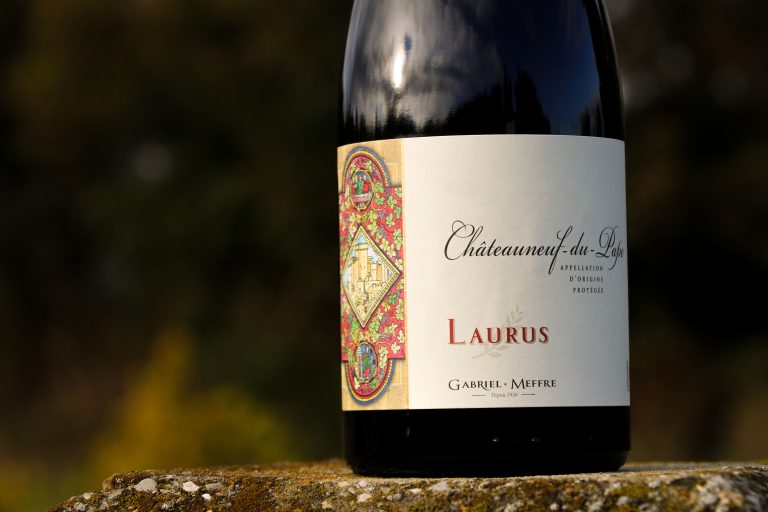
Laurus
Laurus means ‘Laurel’ in Latin, a Roman symbol of excellence. Here excellence is all about “terroir”: the grapes are grown on parcels selected for their ability to express the very best of each Appellation.
The term “terroir” encompasses a soil, a climate and people. Here it is expressed through sustainable partnerships with wine-growers who share our vision. The perfect combination of grape variey & soil, the precise maturing process in unique 275l. French oak "Laurus" barrels refines the structure, producing complex wines, with plenty of character, beautiful elegance and a long ageing potential.
You will like also ...
-
93 pts
Hermitage 2019
Laurus
62,00 €the bottleAOP Hermitage
White
sold by 6 × 75clAdd to cart -
92-94 pts94 pts16/20
-
93-95 pts94 pts91-93 pts
Châteauneuf-Du-Pape 2016
Laurus
46,50 € – 97,00 €the bottleAOP Châteauneuf-Du-Pape
Red
sold by 1 × 75clor1 × 150clSelect options
Secure payment
Customer service at your disposal at 04 90 12 30 21
